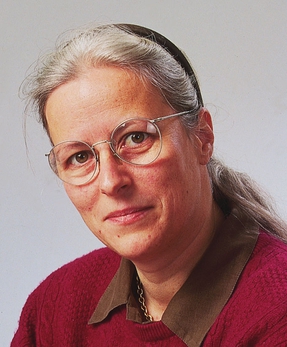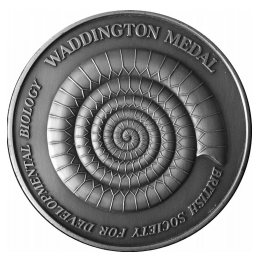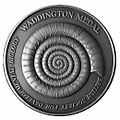Rosa Beddington facts for kids
Quick facts for kids
Rosa Beddington
|
|
|---|---|
 |
|
| Born |
Rosa Susan Penelope Beddington
23 March 1956 Hampshire, England, UK
|
| Died | 18 May 2001 (aged 45) Great Tew, Oxfordshire, England, UK
|
| Nationality | British |
| Alma mater | Brasenose College, Oxford (BA, PhD) |
| Known for | Anterior-posterior patterning in mammalian embryos |
| Spouse(s) | Robin Denniston |
| Awards |
|
| Scientific career | |
| Fields | Developmental biology |
| Institutions |
|
| Thesis | Studies on cell fate and cell potency in the postimplantation mammalian embryo (1981) |
| Doctoral advisor |
|
Rosa Susan Penelope Beddington (23 March 1956 – 18 May 2001) was a brilliant British scientist. She made a huge difference in the field of developmental biology. This is the study of how living things grow and develop from a single cell.
Contents
Early Life and School
Rosa Beddington was born on March 23, 1956. She was the second daughter of Roy and Anna Beddington. She went to Sherborne School for Girls when she was younger.
After that, she studied at Brasenose College in Oxford starting in 1974. She earned top grades in Physiological Sciences in 1977. Rosa then began her advanced studies. She focused on how the front and back parts of a mammal's body are formed. Her PhD research looked at what different cells in an early embryo could become. She earned her PhD in 1981.
Rosa's Amazing Career
Rosa Beddington published many important scientific papers. She did this even though her career was not very long. Some of her key papers were even published after she passed away.
Studying Embryo Development
Rosa spent a lot of time researching how mammals develop. She studied how the main body parts are laid out. She also looked at how different layers of cells form. These layers eventually become all the different tissues and organs.
One of her big discoveries was showing that a tiny part of the early embryo, called the node, acts as an "organizer." This means it helps tell the rest of the embryo how to form its body plan.
New Ways to Study Embryos
Rosa also created new ways to do experiments. She found a way to put an embryo back into the mother's womb after she had worked on it. This allowed scientists to study the embryo for a longer time. She also used special markers to see which cells came from the original embryo and which were added.
While working at the Imperial Cancer Research Fund, Rosa and another scientist, Elizabeth Robertson, saw how useful embryonic stem cells could be. They showed that these special cells could be used to change the genes of a developing embryo. This opened up new ways to study how genes affect development.
Teaching and Leading
From 1986, Rosa helped teach a summer course at Cold Spring Harbor Laboratories. This course taught others how to work with mouse embryos. She was also a secretary for the British Society for Developmental Biology from 1990 to 1995. In 1993, she started and led a new group. This group focused on mammal development at the National Institute for Medical Research.
Awards and Special Honors
Rosa Beddington was also a talented artist. She designed the Waddington Medal. This medal is given to people who have done amazing work in developmental biology. Rosa herself received this medal in 1999.
The British Society for Developmental Biology created another award in her honor. It's called The Beddington Medal. This national award goes to the best PhD research in developmental biology each year. The design of this medal is based on Rosa's own drawings.
When she was chosen to be a member of The Royal Society, a very important science group, they praised her work. They said she was great at using tiny tools to study mouse embryos. She helped show how the main body plan of a mouse forms. She was the first to show that the "node" part of the mouse embryo helps create the body's axis. She also proved that all adult organs come from a certain early cell layer. Her work helped us understand how the front and back of an animal are decided very early in its development.
Personal Life
Rosa Beddington was married to Robin Denniston. She passed away on May 18, 2001, due to complications from cancer.
Images for kids
 | Leon Lynch |
 | Milton P. Webster |
 | Ferdinand Smith |




